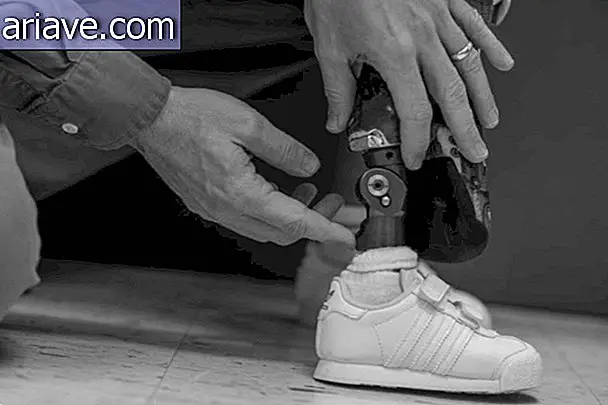5 Lies All Parents Tell Their Children
It seems a bit contradictory: People try to teach their children to always tell the truth, but to do so, they end up resorting to a series of lies. Over time, children will grow up and notice that they have been tricked into behaving. In an article published on the Life Hack website, psychologist Magdalena Battles lists 10 lies that every parent tells her children and what that might entail in parenting. Below are 5 of these gimmicks used to search for your child's ideal behavior and their most suitable alternatives:
1. “I will never let anything bad happen to you”
Never ever? Are you sure? This is obviously what parents want, but protecting their child 100% of the time is impossible! The psychologist warns of other behaviors that parents may have, such as saying that they will protect their child as much as possible, but that there are real-world dangers that are unmanageable, especially if they are far away.
The idea is not to terrorize the child but to make them aware that their actions have consequences. To do this, you have to ponder the words and make sure that your children do not talk to strangers, for example, that they may be bad people - here it may not be appropriate to detail the danger of strangers, especially to very young children, but to warn them of bad situations occur if little ones try to “run away” from their parents.

2. “The playground is closed”
Young children may even believe in this fudge, but after a while they will understand that no, the playground is not closed. If your child is struggling to do something you can't do right now, be honest with him: “Dad needs to go to the market to buy everything for our delicious meals” or “Mom needs to get some documents first and then, if time permits, we'll go to the playground, otherwise I promise to take you tomorrow. ” Remembering, of course, that promises must be kept!
Some children will cry and kick, of course, but if they have learned early on the limits of what she wants and what she can have is better for her training. Not to mention, of course, that this creates a far greater trust than inventing that the playground is closed just because you didn't think of a better excuse for not meeting the infant's wish.

3. “It won't hurt a bit, I promise”
Do not promise what you cannot fulfill. Some people, including children, are more sensitive to pain, so emphasizing that it won't hurt can have a reverse effect and increase the child's fear. In a hospital, for example, explain why your child needs that injection or vaccine, saying that if it hurts, it will be for her sake and it will pass quickly.
Lying that won't hurt can turn you into the villain of the story. The sting of the needle is quickly forgotten, but the fact that you said it would be easy can be difficult to overcome by the deceived child, so the importance of being honest always! It is also possible to turn potentially bad experiences into play to encourage the little ones.

4. “Santa Claus is seeing all that you are doing”
Okay, a few little lies even help maintain childhood with its peculiar taste, such as the idea that Santa Claus exists, for example. Now, using this loving figure to try to get what you want is not the best tactic. Saying that "Santa is seeing and is sad" for your child's bad attitude may lead you to think that punishment will never exist - especially because at Christmas you will give him some gift.
If the goal is to give a concealer, then do it the right way: apply age-consistent punishments, such as being without a TV or smartphone for a period of time, for example. Threats for bad behavior need to be met, as long as, of course, they don't break the edge of common sense - no leaving your child without dinner, huh?

5. “I'm leaving and you will be home alone”
You know you won't do it. Your child knows you will not do. So why keep repeating this kind of threat? If your child is curling up to do something, make threats that you can do - and, once again, do them!
Gradually, children learn that her word is strong and that if she does not immediately obey something she considers bad (running out of dessert, running out of TV, being without visiting her peer) can really happen, because you really put that kind of sanction in practice.












